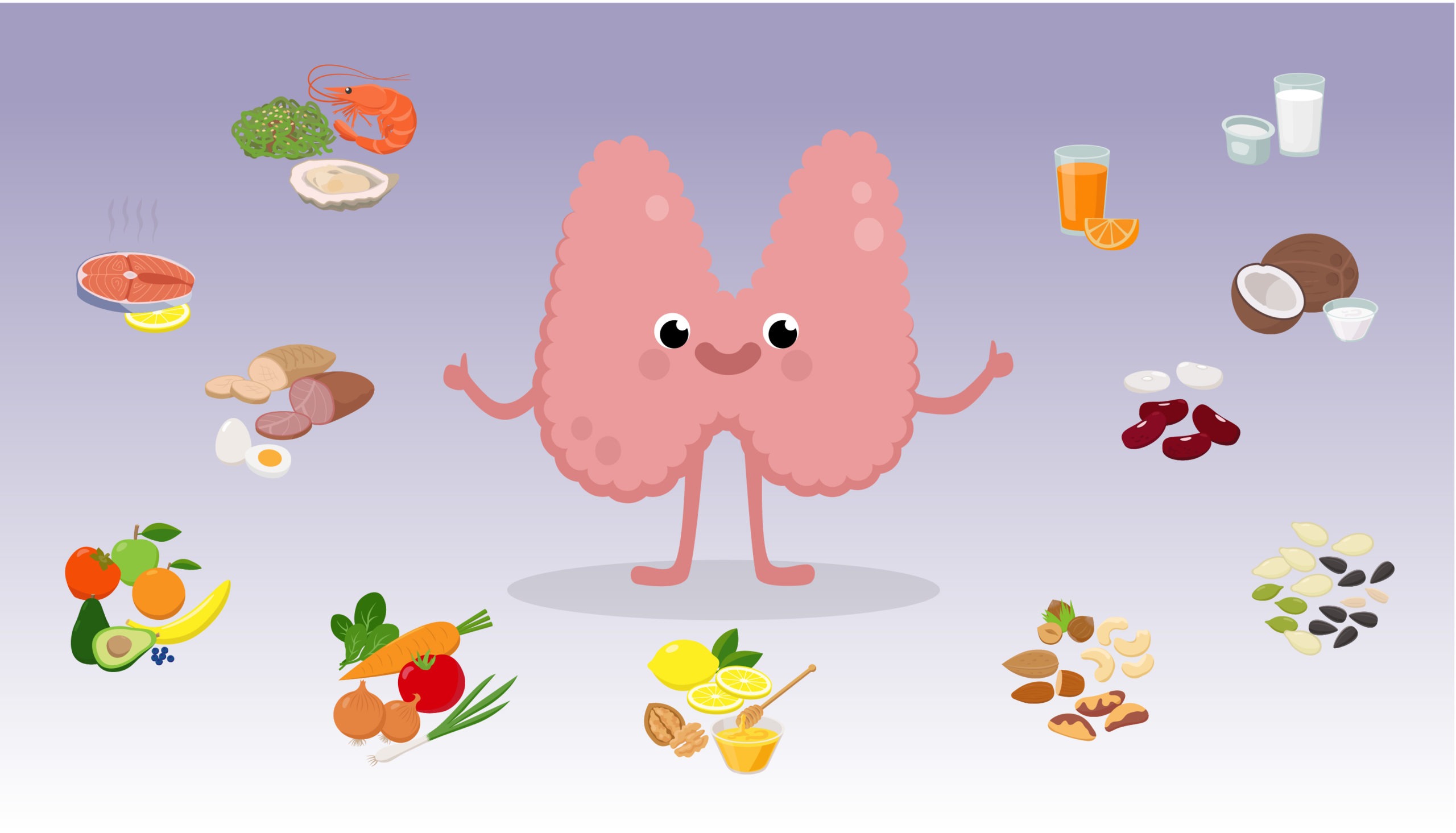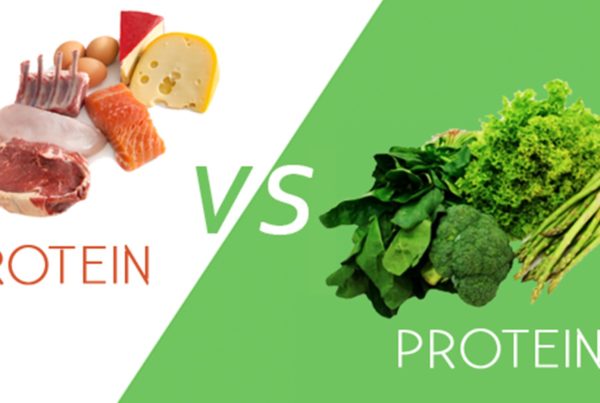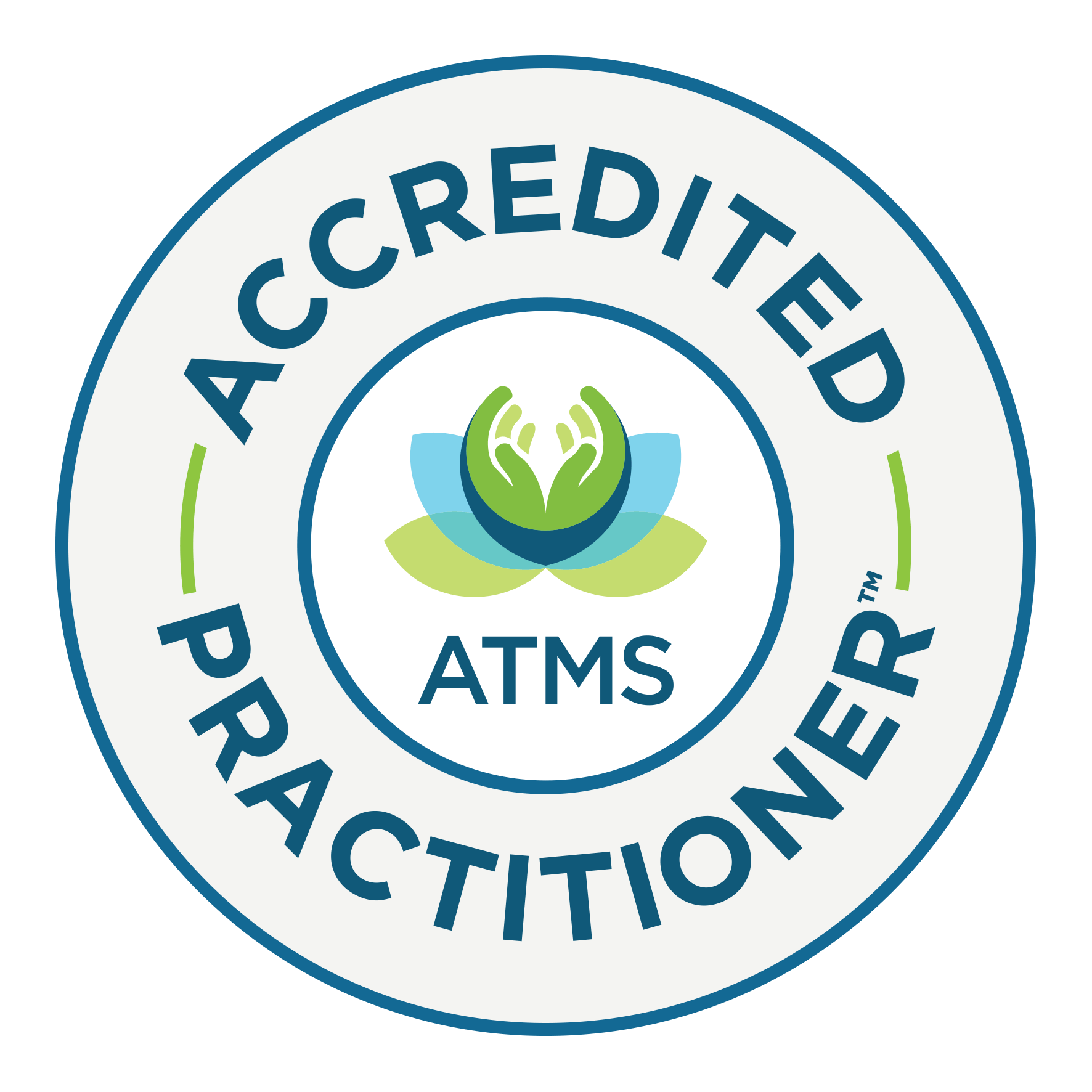Can we reduce Hashimoto’s antibodies naturally?
What are Thyroid Antibodies?
One of the many ways our immune system protects us is through the production antibodies. Antibodies protect us by binding to pathogens like viruses, bacteria, fungi, parasites and other organisms or allergens, which both prevents the pathogens from entering our cells and also labels the pathogens for destruction by the immune system. When we’re fighting off a cold or flu, we are glad to have our immune system to produce antibodies.
But when it comes to our thyroid and other body tissue, we don’t want those antibodies attacking. When antibodies attack our otherwise healthy tissue we refer to this as an autoimmune condition or disease. Autoimmune diseases are actually a case of mistaken identity that have a variety of triggers that can lead the body’s immune system to get confused and to start attacking our own body. With autoimmune thyroid disease (Hashimoto’s) the immune system attacks the healthy thyroid gland tissue. The antibodies that attack the thyroid, or affect thyroid function, are called thyroid auto antibodies and in Hashimoto’s these include anti-thyroid peroxidase (TPO) antibody and anti-Tg (thyroglobulin) antibody.
How do you find out if you have high thyroid antibodies?
Like many people you may be struggling with possible thyroid related symptoms such as anxiety, fatigue, brain fog, digestive issues, insomnia, weight gain, hormone imbalances, fertility challenges. Your doctor may order you some specific blood tests to assess your thyroid health, and this is where things can get a little tricky and confusing.
Here is a common scenario. When you get your test results back, you are told that your thyroid labs show that you have Hashimoto’s. There are some specific patters in your blood that confirm this diagnosis. Your TSH (Thyroid Stimulating Hormone) is high, your Free T3 or Free T4 could be low or maybe even normal, and your thyroid antibodies (TPOAb and/or TgAb) are positive. Ok hold up, if this all sounds like an alien language let me try to clear up a few things.
The presence of thyroid antibodies (TPOAb/TgAb) in the blood, in conjunction with high TSH, or low FT4 or FT4 is indicative of Hashimoto’s versus non-autoimmune hypothyroidism where you do not have any antibodies present. Hypothyroidism is a problem with your thyroid gland; Hashimoto’s is a problem with your immune system. In Hashimoto’s, as in all autoimmune diseases, the immune system gets confused and mistakenly attacks a part of your own body, kind of the metabolic equivalent of “friendly fire”.
Another scenario: Your thyroid labs are within “normal ranges”, but your thyroid antibodies are high. Unfortunately many physicians have been taught to dismiss this result because your other thyroid labs are currently ok, but remember thyroid antibodies are your bodies immune system mistakenly attacking your healthy thyroid tissue.
What does this mean?
Imagine a battle taking place at a well fortified medieval castle. The attackers are hurling rocks, shooting arrows and using battering rams in an attempt to bring down the castle gates. Your troops are doing a good job at repelling the attack, and inside the castle life continues on generally undisturbed. However this army is relentless and continues to receive a seemingly endless supply of reinforcements each day, and after many months of siege cracks are forming in the walls, a few arrows get through and a few citizens starting to feel the effects of this constant attack. Eventually the walls come down and the the city is overrun. Of course in this scene the castle is the thyroid and the attacking army are thyroid antibodies.
Perhaps you already have your diagnosis of Hashimoto’s and may or may not be on thyroid hormone replacement medication, but you’re not feeling better and your thyroid antibodies are still not coming down. Their presence may cause continuous damage to the thyroid tissue, leading to a decrease in thyroid hormone production.
But can you reduce thyroid anti-bodies naturally
You actually can bring thyroid antibodies down, and you can do it naturally, in fact there are strong scientific studies demonstrating this and I will do my best to provide some information to help you have a good chance at bringing your levels down. We may never be able to get them to zero but a few people throwing stones at your wall is very different to an army attacking at full force.
What can causes Thyroid Antibodies?
As a Naturopath I am always looking to find and treat the Root Causes of any health issue and Thyroid Antibodies are no exception. There are several Root Causes that can lead the body to start to attack the thyroid, and a couple of basic “mechanisms’” whereby this happens.
When is comes to genetics you may have inherited a susceptibility to Hashimoto’s however as we now clearly understand, genetics loads that gun but it is environment that pulls the trigger. Environment and lifestyle factors like nutrition, chronic stress, and gut health, may play a role in determining whether those genes activate disease.
Your GUT Health is vitally important, as well as a thyroid-friendly diet. The majority or your immune system resides in your GUT and the community of bacteria that reside there play an integral role in regulating the immune system. The immune system can lose it’s balance due to factors such as dysbiosis (The balance between good and bad bacteria), leaky gut, stress, high sugar/carbohydrate intake, low fibre intake, toxic exposure, lack of sleep and many other factors.
Having a Leaky gut as we mentioned has a huge impact on immune function. It is amazing to know that the inner lining of the gut is only a single cell thick and when these cells are packed firmly next to each other we refer to this as “tight junctions”. When the gut is damaged the junctions open up and can allow food particles, bacterial fragments, and other organisms cross the intestinal barrier. In a healthy gut, only nutrients should be able to cross this barrier however when larger particles enter the system our immune system see’s this and starts to create antibodies to flag these trespassers for destruction.
We now know that there is a strong link between celiac disease (an autoimmune disease where people are unable to process gluten) and Hashimoto’s. Incidence of celiac disease has been rising since the second half of the 20th century into the 21st century. 50–60 years ago wheat containing only five percent gluten has become 50 percent gluten today leading to the 10-fold increase of wheat’s gluten. Why is this important and how does gluten relate to thyroid antibodies?
- Gluten has been shown to create leaky gut, the more gluten the more leaky gut.
- Once the gluten has created the leaky gut it also through the barrier into the system, the immune system then creates an antibody to flag that gluten protein for destruction. And here is the kicker!
- The protein structure of gluten is similar to the structure of the thyroid
When antibodies are created the do not simply go straight to the source of the gluten protein, they cycle through the body looking to attach to gluten protein molecules. As the antibodies travel through the system they also come in contact with the thyroid and because, as we mentioned, the gluten protein structure is a similar structure to the thyroid tissue the antibodies also attach to the thyroid tissue, effectively flagging the thyroid to be attacked by your own immune system by mistake.
Nutritional insufficiencies are another common factor in the production of thyroid auto-antibodies. Estimates are that as many as 8 out of 10 women fall short on getting enough of the nutrients we require for health – including thyroid health – on a daily basis. However, because many women fall short of experiencing full-on nutritional deficiencies, blood work and lab tests don’t always raise red flags for your doctor, At the same time, many women don’t have optimal levels of key nutrients and they experience subtle symptoms that can contribute to big diseases. For example, low zinc, vitamin D, vitamin A, and selenium are all associated with the development of Hashimoto’s. See the action steps below for specific supplements for reducing elevated thyroid antibodies, always try to optimize your diet to include 8-10 servings of fresh fruit and veggies daily (not as hard as it sounds – portion sizes are smaller than most of us realize) and consider adding a multivitamin daily for extra protection.
Chronic stress can be its own Root Cause of an autoimmune attack – research has shown an association between Hashimoto’s and chronic stress and/or childhood trauma – and it can add fuel to the fire of the other Root Cause: chronic stress exacerbates inflammation, leaky gut, alters the gut microbiome, depresses the immune system, and even send messages to our genes to activate in unhealthy ways. Adding in one practice every day – whether it’s a morning meditation for even just five minutes, an evening wind-down with a cup of tea and a hot bath or shower, or ten minutes of journaling – can start to reprogram your natural cortisol levels, calm your adrenal stress response system, and take off the stress that can be adding to a thyroid problem. I talk more about the adrenals, stress and thyroid health here.
Studies have linked exposure to environmental toxins and unwanted antibody production. Research has identified an increasingly large number of chemicals, plastics, and heavy metals that disrupt both the endocrine system and immune function. For example, factory workers who have had exposure to endocrine-disrupting chemicals have a higher incidence of thyroid autoantibody production.
Antibody production may also be sparked by stealth infections (for example, Epstein-Barr virus or Cytomegalovirus). There are several theories about how infections foster autoimmunity. One possibility is the molecular mimicry theory, in which the immune system remembers specific proteins on the viruses that it (appropriately) attacked, but then it starts (inappropriately) attacking other proteins in the body that look similar to the virus protein. It’s as if the immune system forgot to put on its glasses and can no longer make out the small differences between the virus proteins and healthy proteins. So it starts to attack both proteins, just to be safe. Another theory is called the bystander effect, in which the immune system attacks the cells along with the virus, or the virus stimulates the release of specific immune cells that are primed to attach to the body itself.
Ultimately, what’s clear is that autoimmune conditions are on the rise, they are especially common among women, and they are fueled by environmental factors that include nutrition, gut health, toxic exposure, hidden infection, and stress and anxiety.
Dietary Recommendations
- Remove all GLUTEN – Very Important
- Reduce or better still remove all dairy
- Add in fermented foods like sauerkraut, kimichi, kefir, kombucha
- Increase fiber intake
Helpful supplements for Hashimoto’s
Several supplements may help lower inflammation and thyroid antibodies in people with Hashimoto’s thyroiditis. Plus, those with this condition are more likely to be deficient in certain nutrients, so supplementing may be necessary.
A personalised supplement treatment protocol may include:
- Selenium. Studies show that taking 200 mcg of selenium per day may help reduce antithyroid peroxidase (TPO) antibodies and improve well-being in people with Hashimoto’s thyroiditis (PUB MED).
- Zinc. Zinc is essential for thyroid function. Research suggests that when used alone or alongside selenium, taking 30 mg of zinc per day may improve thyroid function in people with hypothyroidism (PUB MED, PUB MED).
- Curcumin. Animal and human studies have shown that this powerful anti-inflammatory and antioxidant compound may protect the thyroid. Plus, it may help treat autoimmune diseases in general (PUB MED, PUB MED, PUB MED).
- Vitamin D. People with Hashimoto’s thyroiditis have been shown to have significantly lower levels of this vitamin than the general population. What’s more, studies link low vitamin D levels with Hashimoto’s thyroiditis severity (PUB MED, PUB MED).
- B complex vitamins. People with Hashimoto’s thyroiditis likewise tend to be low in vitamin B12. Taking a high quality B complex vitamin boosts levels of B12 and other important B vitamins.
- Magnesium. Low levels of this mineral are associated with an increased risk of Hashimoto’s thyroiditis and higher thyroid antibodies. Plus, correcting magnesium deficiencies may improve symptoms in people with thyroid disease (PUB MED, PUB MED).
- Iron. People with Hashimoto’s thyroiditis are more likely to develop anemia. Iron supplements may be needed to correct a deficiency (PUB MED).
Other supplements like fish oil, alpha-lipoic acid, and N-acetyl cysteine may also help people with Hashimoto’s thyroiditis (PUB MED, PUB MED, PUB MED).
Note that supplementing with high doses of iodine in the absence of an iodine deficiency may lead to adverse effects in those with Hashimoto’s. Don’t take high dose iodine supplements unless a healthcare professional has directed you to do so (PUB MED, PUB MED).






